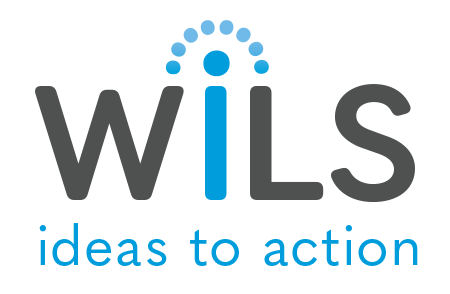One of our greatest joys at WiLS is hearing our members tell the stories of the big and important work they are doing – interesting new projects or initiatives, or even interesting and new approaches to old projects. And, in addition to hearing about it, it makes us even happier when we can share those stories with other members. Each month, WiLS is proud to feature an interview with one of our library members. This month, we interview Marc Boucher, Library Director at Lake Superior State University, former WiLS Board member, and first Michigander WiLS member!
This interview is part of a series of interviews with both WiLS member and vendor partners. Your feedback is appreciated. If you have any to offer on this article, or suggestions for upcoming interviews, contact Andrea Coffin at acoffin@wils.org.
Why did you, personally, choose to work in libraries?
My love of learning is what opened me up to the world of libraries. I had thought I would become a history teacher, but when I learned there was this thing called ‘’Library School” I decided I would pursue that option as well. Libraries were a great opportunity for me to be able to contribute to the learning environments of others and allowed me to be creative and share my passion for lifelong learning, so it has been a very good personal fit!
What is unique about the culture of your library? How do you influence it?
Being new to the culture of higher education in Michigan has been a huge learning experience for me. I have previously worked in various types of academic libraries in Wisconsin, but not in Michigan. The culture in Michigan is very diiferent than the UW System idea of ‘One System One Library’ because each institution is independent and answers to their own board of regents. Thus, while collaboration is looked upon favorably, it is not anywhere a part of the lifeblood of how we work here. Being an out-of-state WiLS member is also a unique situation. When I was fortunate enough to serve on the WiLS Board, I remember very vividly that WiLS no longer stood for any acronym that limited its services to WI. Now that I am beyond the state’s borders, I am still in communication with WiLS and have several projects that I look forward to working with them and other members in the future. Why let state boundaries get in the way of library collaboration?
What do you think is important to know about the patrons or community you work with? What helps you understand those needs?
Oh my, where do I start? Being new to this University, state and community I have so much to learn about the various patrons we serve. I’ve been trying to understand what services that have been offered in the past that are seen as valuable and essential, all the while trying to engage with various groups about possible new ways for the library to serve them – many of which they might not have ever thought the library was there to do. We are trying to redefine the role of the campus library both on campus and in the community. The development of a strong partnership with the public library has been very helpful so far. We are already working on shared outreach programming and investigating a joint library card.
What big ideas are being worked on at your library? What problems are being solved?
We are in the process of integrating other academic support functions into the library and developing a vibrant learning commons. Among the areas being integrated into the library are testing, tutoring, faculty center for teaching and learning and career services. That’s the plan for now, we’ll see how it plays out – perhaps others will join, or even drop out! However, this does require a complete rethinking of how we use library space and best provide service. We are also working on several technology initiatives to bring to the campus such as blogs, course casting, setting up an institutional repository and a few more big ones in the works! So much to work on and the time just seems to fly by – the students will be back before we know it!
Do you have anything else you’d like to share here?
I have enjoyed working with WiLS in the past, especially as it has gone through a major transition. The vision of helping libraries of all types (and now locations) to work collaboratively is near and dear to my heart and I am glad that I can still be a part of the WiLS community even though I now work in a different state!
[We are so happy for that, too, Marc! – Ed.]
